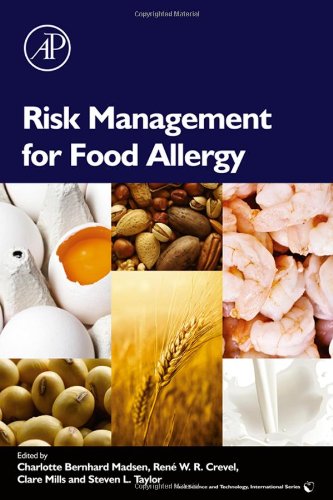

Most ebook files are in PDF format, so you can easily read them using various software such as Foxit Reader or directly on the Google Chrome browser.
Some ebook files are released by publishers in other formats such as .awz, .mobi, .epub, .fb2, etc. You may need to install specific software to read these formats on mobile/PC, such as Calibre.
Please read the tutorial at this link. https://ebooknice.com/page/post?id=faq
We offer FREE conversion to the popular formats you request; however, this may take some time. Therefore, right after payment, please email us, and we will try to provide the service as quickly as possible.
For some exceptional file formats or broken links (if any), please refrain from opening any disputes. Instead, email us first, and we will try to assist within a maximum of 6 hours.
EbookNice Team

Status:
Available4.7
40 reviewsRisk Management for Food Allergy is developed by a team of scientists and industry professionals who understand the importance of allergen risk assessment and presents practical, real-world guidance for food manufacturers.
With more than 12 million Americans suffering from food allergies and little indication of what is causing that number to continue to grow, food producers, packagers and distributors need to appropriately process, label and deliver their products to ensure the safety of customers with allergic conditions. By identifying risk factors during processing as well as determining appropriate ''safe'' thresholds of ingredients, the food industry must take increasingly proactive steps to avoid direct or cross-contamination as well as ensuring that their products are appropriately labeled and identified for those at risk.
This book covers a range of critical topics in this area, including the epidemiology of food allergy, assessing allergen thresholds and risk, specifics of gluten management and celiac disease, and much more. The practical advice on factory risk management, catering industry practices, allergen detection and measurement and regulatory controls is key for food industry professionals as well as regulators in government and other public bodies.
*Science-based insights into the potential risks of food allergens *Focused section on determining thresholds *Practical guidance on food allergen risk management, including case studies